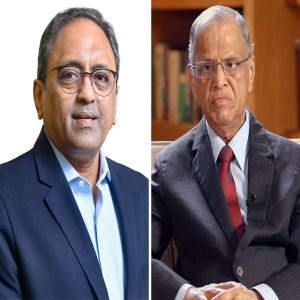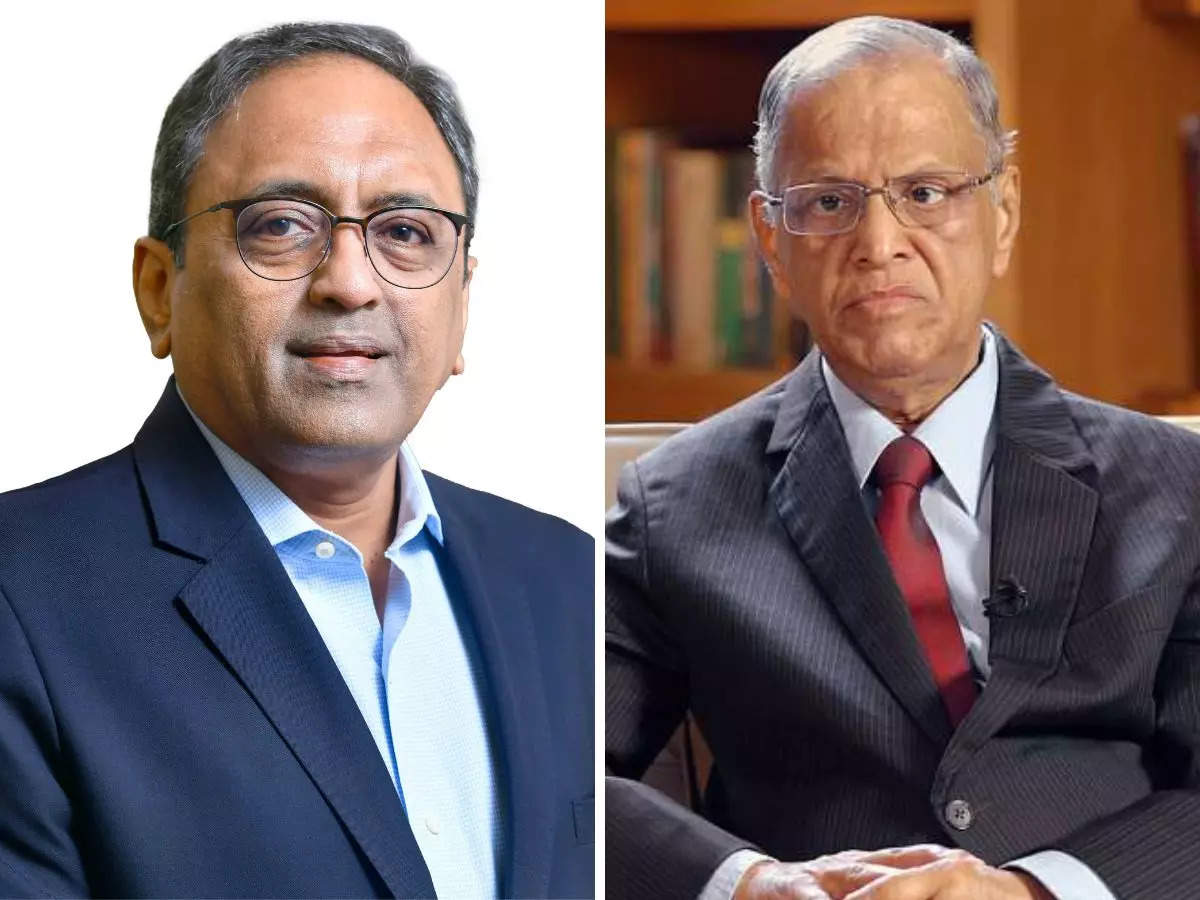
.png) M L Satyan
M L Satyan

Today, two industrialists have become the talk of social media, both in India and abroad. One person is Mr NR Narayana Murthy of Infosys and the other person is Mr SN Subrahmanyan of Larsen & Toubro (L&T).
Weeks after Infosys co-founder Narayana Murthy promoted 70 hours of work week that irked people, now L&T chairman Subrahmanyan has stirred up a new controversy with his 90-hour work week remark. Not just this, Subrahmanyan also suggested that people should work on Sundays too. They are widely and strongly criticised for their promotion of a 70 to 90-hour work culture.
Remember that both these persons are very rich and have accumulated sufficient wealth for themselves and their families. They lead a royal life. Are these two industrialists not aware of the work-life culture promoted in developed countries? Recently, Tokyo decided to introduce a four-day workweek in 2025 as part of Japan's 'work-style reform.'
Interestingly, L&T has defended its chairman's statement: "At L&T, nation-building is at the core of our mandate. For over eight decades, we have been shaping India's infrastructure, industries, and technological capabilities. The chairman's remarks reflect this larger ambition, emphasising that extraordinary outcomes require extraordinary effort."
At this stage, a spontaneous question arises: Is nation-building done by destroying the lives and families of the employees/labourers? It is a known fact that there is already a wide gap between the rich and poor in India. Sadly, the rich people become richer, and the poor people become poorer.
Today, in India, 70 to 80 per cent of wealth is accumulated by 10 per cent of rich people. The remaining 20 to 30 per cent is distributed among other categories of people. The unequal distribution of wealth is one of the major causes of poverty.
Does this mean rich people do more work and poor people do less? Not at all! The rich people suck the labour from the poor people in order to earn more money for themselves. The poor labourers in the unorganised sector and the employees in the organised sector are not paid for their work.
The system ensures that top management or employers always get the bigger piece of the cake. Labourers and employees are often deprived of equal opportunities to work and earn.
To me, these two industrialists are greedy to the core. Needs can always be met, but greed can never be met. These two corporate persons are indirectly saying, "We are already rich. Make us richer by putting in your extra labour for 70 to 90 hours a week."
I wish to quote a relevant anecdote. A man was on his deathbed. When he realised it, he saw God coming closer with a suitcase in his hand. A dialogue takes place between God and man. In the place of the man, I wish to place the Chairman of L&T.
God: Alright, son, it is time to go!
Chairman: So soon? I have many plans for my future.
God: I am sorry, but it is time to go.
Chairman: What do you have in that suitcase?
God: Your belongings.
Chairman: My belongings? Do you mean my things, clothes and money?
God: Those things were never yours. They belong to the earth.
Chairman: Are these my memories?
God: No. They belong to time.
Chairman: Are these my talents?
God: No. They belong to circumstance.
Chairman: Are these my friends?
God: No, son. They belong to the path you travelled.
Chairman: Are they my wife, children and relatives?
God: No. they belong to your heart.
Chairman: Then, it must be my body.
God: No. It belongs to dust.
Chairman: Then, surely it must be my soul.
God: You are sadly mistaken, son. Your soul belongs to me.
Filled with fear, the chairman took the suitcase from God's hand and opened it. It was empty. He was heartbroken, and tears rolled down his cheeks. With great hesitation, he asked God.
Chairman: Does this mean that I never owned anything?
God: That's right. You never owned anything.
Chairman: Then, what was mine?
God: Your MOMENTS. Every moment you spent with your wife, children, relatives and friends was yours. Life is just a moment.
Chairman: I really regret now for being a workaholic, for advocating more working hours, for being greedy to earn more money and for neglecting my family.
The Bhagavad Gita tells us:
"What have you lost that you cry for?
What did you bring that you have lost?
What did you create that was destroyed?
What you have taken has been from here.
What you gave has been given here.
What belongs to you today belonged to someone yesterday
and will belong to someone else tomorrow."
Every human being comes into this world empty-handed and will go from this world empty-handed. This is the TRUTH. When we were not allowed to bring anything to this world at the time of birth, we are also not permitted to take anything from this world at the time of death.
Let's try to live this momentary life meaningfully. Let us do honest work, be content with what we have, and be happy with our family and friends. In Tamil, there is a proverb: "podhumendra manage, pon seyyium marundhu," which means, "A contented mind is like a gold-yielding medicine."